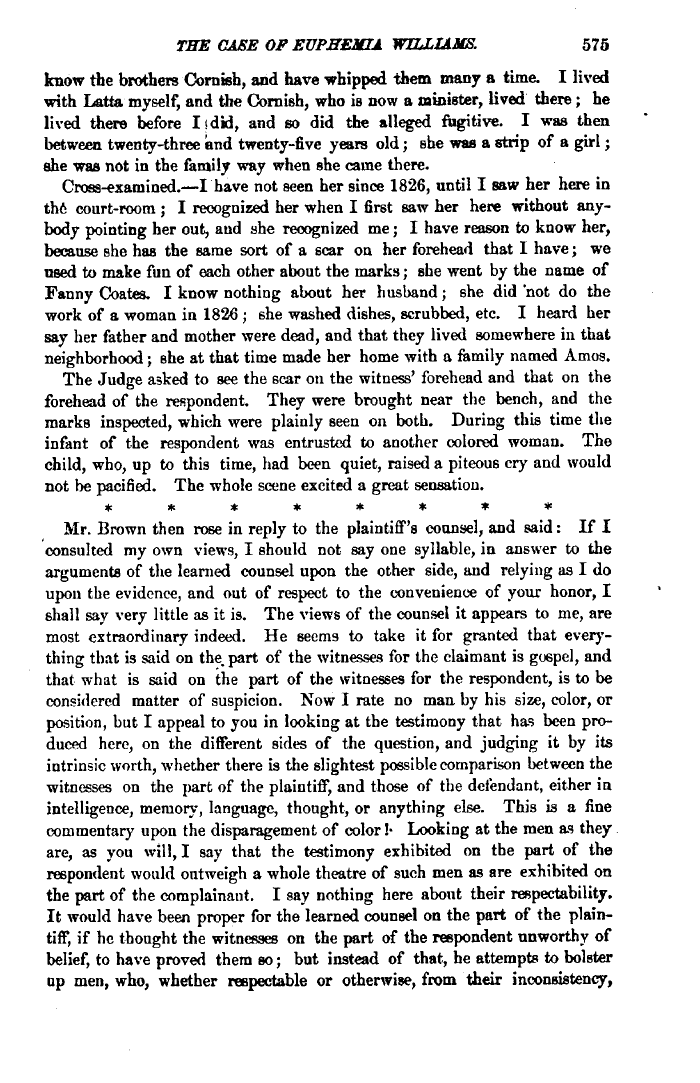 |
||||
 |
||||
| THE CASE OP EUPHE1OA WILLIAMS. 575 know the brothers Cornish, and have whipped them manj a time. I lived with Latta myself, and the Cornish, who is now a minister, lived there; he lived there before lidid, and so did the alleged fugitive, I was then between twenty-three and twenty-five years old; she was a strip of a girl; she was not in the family way when she cauie there. Cross-examined.—I have not seen her since 1826, until I saw her here in th6 court-room ; I recognized her when I first saw her here without anybody pointing her out, and she recognized me; I have reason to know her, because she has the same sort of a scar on her forehead that I have; we used to make fun of each other about the marks; she went by the name of Fanny Coates. I know nothing about her husband; she did 'not do the work of a woman in 1826 ; she washed dishes, scrubbed, etc. I heard her say her father and mother were dead, and that they lived somewhere in that neighborhood; she at that time made her home with a family named Amos. The Judge asked to see the scar on the witness' forehead and that on the forehead of the respondent. They were brought near the bench, and the marks inspected, which were plainly seen on both. During this time the infant of the respondent was entrusted to another colored woman. The child, who, up to this time, had been quiet, raised a piteous cry and would not be pacified. The whole scene excited a great sensation. ******** Mr. Brown then rose in reply to the plaintiff's counsel, and said: If I consulted my own views, I should not say one syllable, in answer to the arguments of the learned counsel upon the other side, aiid relying as I do upon the evidence, and out of respect to the convenience of your honor, I shall say very little as it is. The views of the counsel it appears to me, are most extraordinary indeed. He seems to take it for granted that everything that is said on the. part of the witnesses for the claimant is gospel, and that what is said on the part of the witnesses for the respondent, is to be considered matter of suspicion. Now I rate no man by his size, color, or position, but I appeal to you in looking at the testimony that has been produced here, on the different sides of the question, and judging it by its intrinsic worth, whether there is the slightest possible comparison between the witnesses on the part of the plaintiff, and those of the defendant, either in intelligence, memory, language, thought, or anything else. This is a fine commentary upon the disparagement of color !• Looking at the men as they are, as you will, I say that the testimony exhibited on the part of the respondent would outweigh a whole theatre of such men as are exhibited on the part of the complainant. I say nothing here abont their respectability. It would have been proper for the learned counsel on the part of the plaintiff, if he thought the witnesses on the part of the respondent unworthy of belief, to have proved them BO ; but instead of that, he attempts to bolster op men, who, whether respectable or otherwise, from their inconsistency, |